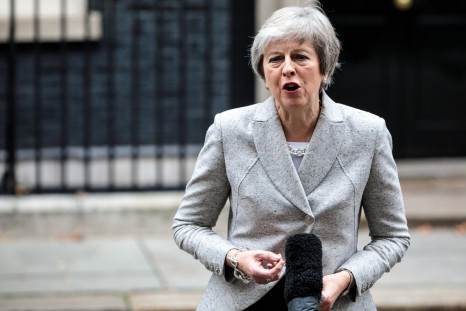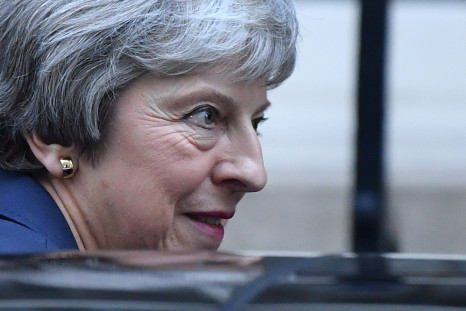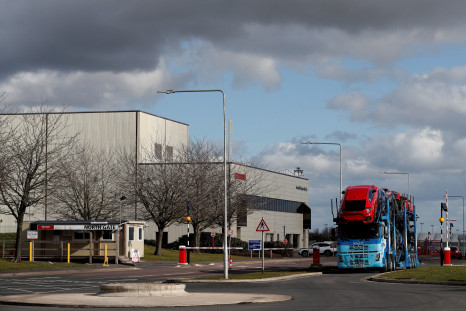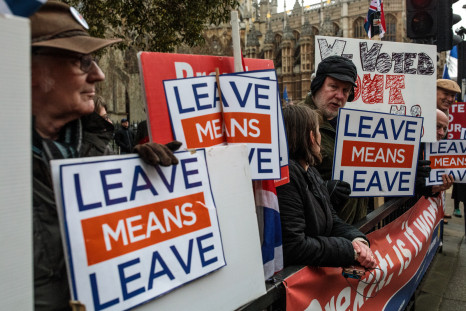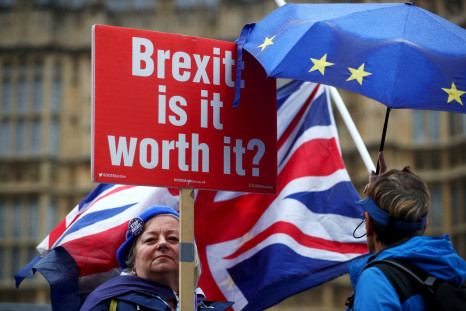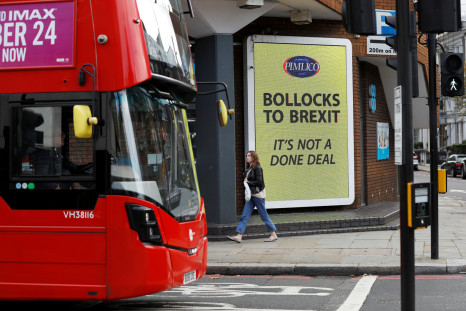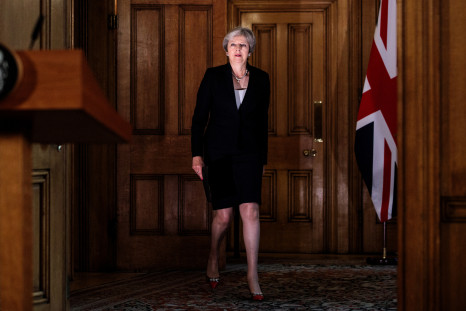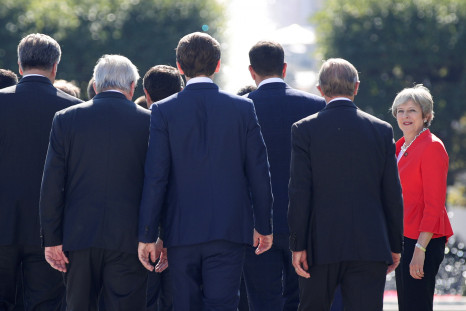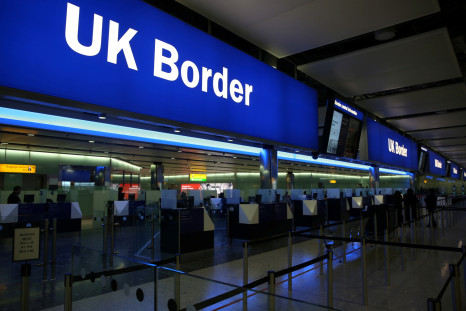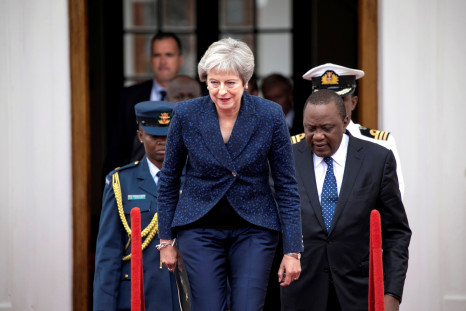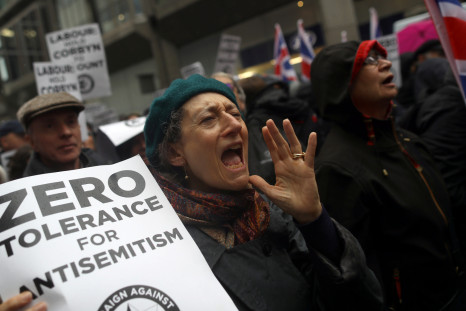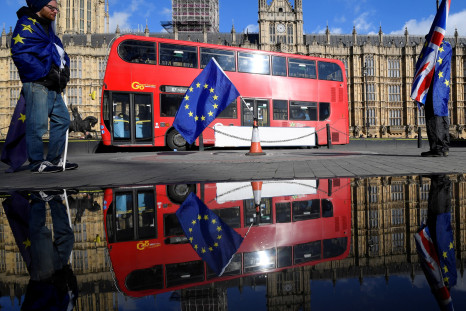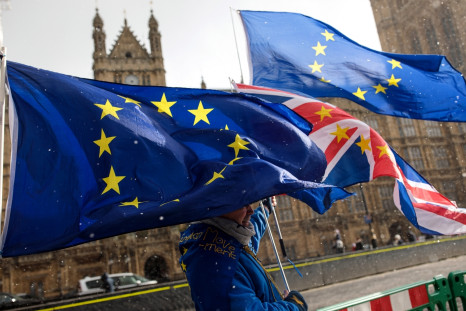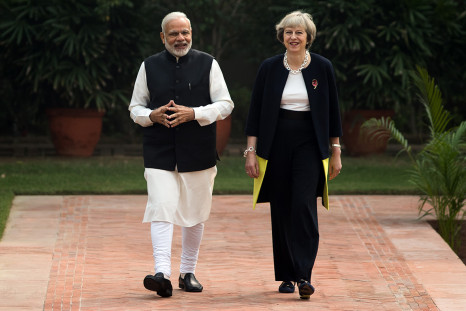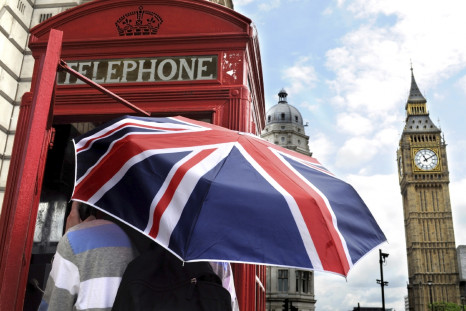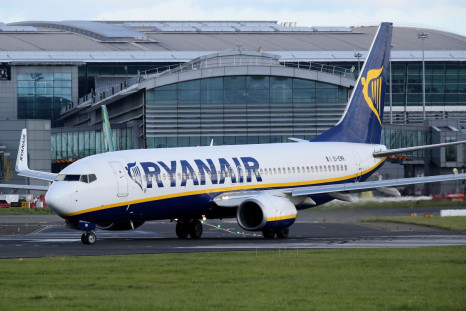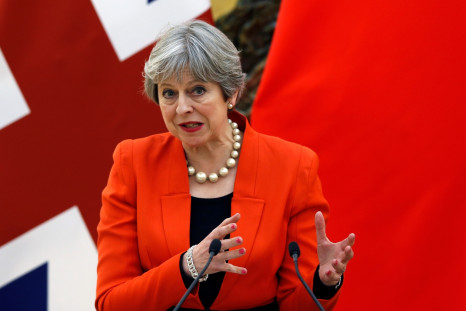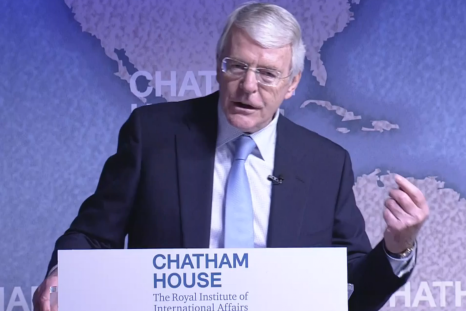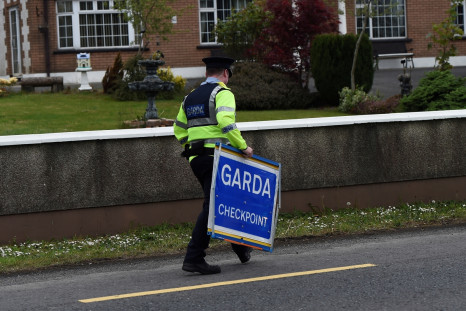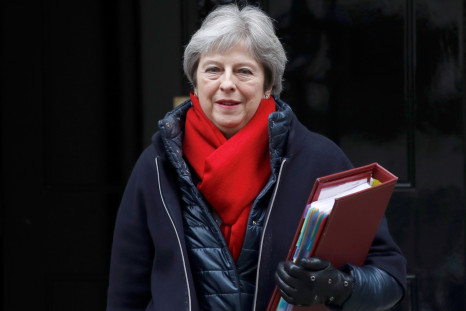Home
> Brexit
Brexit
Brexit uncertainty hurt UK economy – extending Article 50 could hurt it more
The ongoing policy uncertainty affects both ends of the economy: consumers and producers.
Costas Milas Mar 01, 2019
Brexit date could be delayed until 2021 as Theresa May's plans underwhelm
Brexit is unlikely to happen on March 29 and may drag on until 2021.
Kalyan Kumar Feb 26, 2019
Honda to lay off 3,500 with UK car plant closure, Brexit to blame?
Honda's decision to close down its only car plant in the UK will see 3,500 employees lose their jobs.
Arthur Villasanta Feb 20, 2019
Brexit: An 'escape room' with no escape
The UK's agonizing efforts to find a path out of the European Union is beginning to look a lot like a game or riddle with no solution – and certainly no winners.
Terrence Guay Jan 17, 2019
Brexit diet could lead to 5,600 deaths a year as fresh fruit and veg prices shoot up
Brexit-related increase in trade costs will make it harder to get hold of foods that are critical components of healthy diets and chronic-disease prevention.
Marco Springmann Oct 25, 2018
We must stop a minority of Brexit fanatics from holding the United Kingdom to ransom
The hard Brexit wheels are coming off. We know it, the EU knows it, May knows it.
Andy Price Oct 19, 2018
Conservative Party conference 2018: It's do or die for Theresa May
The cost of failure in Birmingham will be very high for May, the Conservative Party, and the country.
Andrew Scott Crines Oct 01, 2018
Chequers vs Canada-plus Brexit trade plans – 7 key differences explained
Overall, neither proposal is very attractive from an economic point of view.
L Alan Winters Sep 27, 2018
Is Chequers plan dead? Why Theresa May's Brexit great escape is still possible
Theresa May's trip to Austria has made it even harder to argue that Chequers is really the answer to the Brexit question.
Simon Usherwood Sep 21, 2018
Brexit: What EU migration has done for the UK
Despite the numerous positive benefits, it may be in private-rented accommodation and low-paid work where the impact is most perceived.
Louise Ryan Sep 20, 2018
Theresa May in Africa: Cynical post-Brexit development agenda smacks of desperation
May is the latest in a long line of prime ministers who have evoked the potential of "Africa" for their own political purposes.
Michael Jennings Aug 30, 2018
Why cheaper drugs threaten the health of patients
Patients and the pharmaceutical industry could soon feel the affects of EU plans to reduce patent protection period.
Peter J. Pitts Aug 09, 2018
Jeremy Corbyn, antisemitism and the problem of nothingness
Antisemitism demands open reflection, a vision for the future and, most of all, political leadership.
Matthew Flinders Aug 02, 2018
Brexit: champagne, parmesan, prosecco and feta could soon be at the centre of negotiations
Brussels have expressed fear that British producers will start exploiting previously protected European food names.
Enrico Bonadio Aug 01, 2018
Can the bond between France and Germany keep the rest of the EU united?
A renewed bilateral Franco-German bond is a necessary condition to counter the centrifugal forces currently testing the European Union.
Helen Drake Jul 03, 2018
Airbus departure: How real are the Brexit threats?
Despite the logic for Airbus moving operations, its departure from the UK is not a given.
Mark Johnson Jun 25, 2018
Three ways to recruit the best talent in a post-Brexit world
With less professionals looking to the UK for career opportunities and as the labour market tightens, recruiters and businesses need to keep innovate.
Jon Addison Jun 05, 2018
How Britain can remain a soft power superpower after Brexit
The UK shouldn't underestimate the ability of its artistic and cultural material to have a powerful diplomatic effect.
Tolu Olarewaju May 30, 2018
How to defend the wages and rights of the British worker post-Brexit
Fears are growing that Brexit will trigger a competitive race to the bottom which will leave the British worker worse off.
William Brown May 27, 2018
Bring super-rich migrants to UK out of the shadows
Chelsea FC owner Roman Abramovich's latest visa woes highlight the need for a code of ethics to make investment migration more transparent.
Bruno L'ecuyer May 23, 2018
Why too many monolinguals will hurt British businesses post-Brexit
Britain's chronic language skills gap will damage its ability to trade.
Alex Pusco May 22, 2018
The US-China trade war and why Brexit Britain should be worried
Donald Trump is fragmenting the world trade order making the hoped-for favourable trade deals post-Brexit a far more difficult prospect.
Jonathan Perraton Apr 20, 2018
It is time to reinvent the Commonwealth with India at its centre
Over half of the Commonwealth's 2.3bn citizens are Indians.
Manoj Ladwa Apr 20, 2018
Do not disturb: 3 ways the UK hospitality industry can continue to prosper post-Brexit
Hospitality industry employs a much higher proportion of EU nationals when compared to the UK workforce as a whole – 12.3% compared with 6.9%.
Inderneel Singh Mar 19, 2018
Ryanair CEO threatens to ground planes post-Brexit and warns there will be no more cheap holidays
Ryanair chief executive Michael O'Leary says his airline may ground flights after Brexit to make voters "rethink".
Brendan Cole Mar 06, 2018
Theresa May caves in to Tory Brexiteers by not committing to mirror EU rules
Theresa May will outline five tests for Brexit in a keynote speech on Friday at Mansion House in London.
Brendan Cole Mar 02, 2018
Irish border is being used to spark new Brexit referendum says Boris Johnson
Foreign secretary Boris Johnson says that the issue of the Irish border is being used as a "proxy war" to thwart Brexit.
Brendan Cole Mar 01, 2018
It's time for the great GDPR wake-up call
Nick Felton, Senior Vice President, MHR Analytics, says public and private sector organisations face a seismic impact on 25th May.
Nick Felton Feb 28, 2018
Theresa May to tell EU: You can't break up UK over Northern Ireland's post-Brexit status
The prime minister Theresa May will tell the EU it can't break up the UK over Northern Ireland's post-Brexit status.
Brendan Cole Feb 27, 2018
Is Brexit about to topple Theresa May? Customs union row could be the turning point
The customs union row along with the Irish border issue could be about to engulf Downing Street.
Jordan Bhatt Feb 27, 2018
Pages
- PREV
- 1
- 2
- 3
- 4
- 5
- 6
- 7
- 8
- 9
- NEXT


